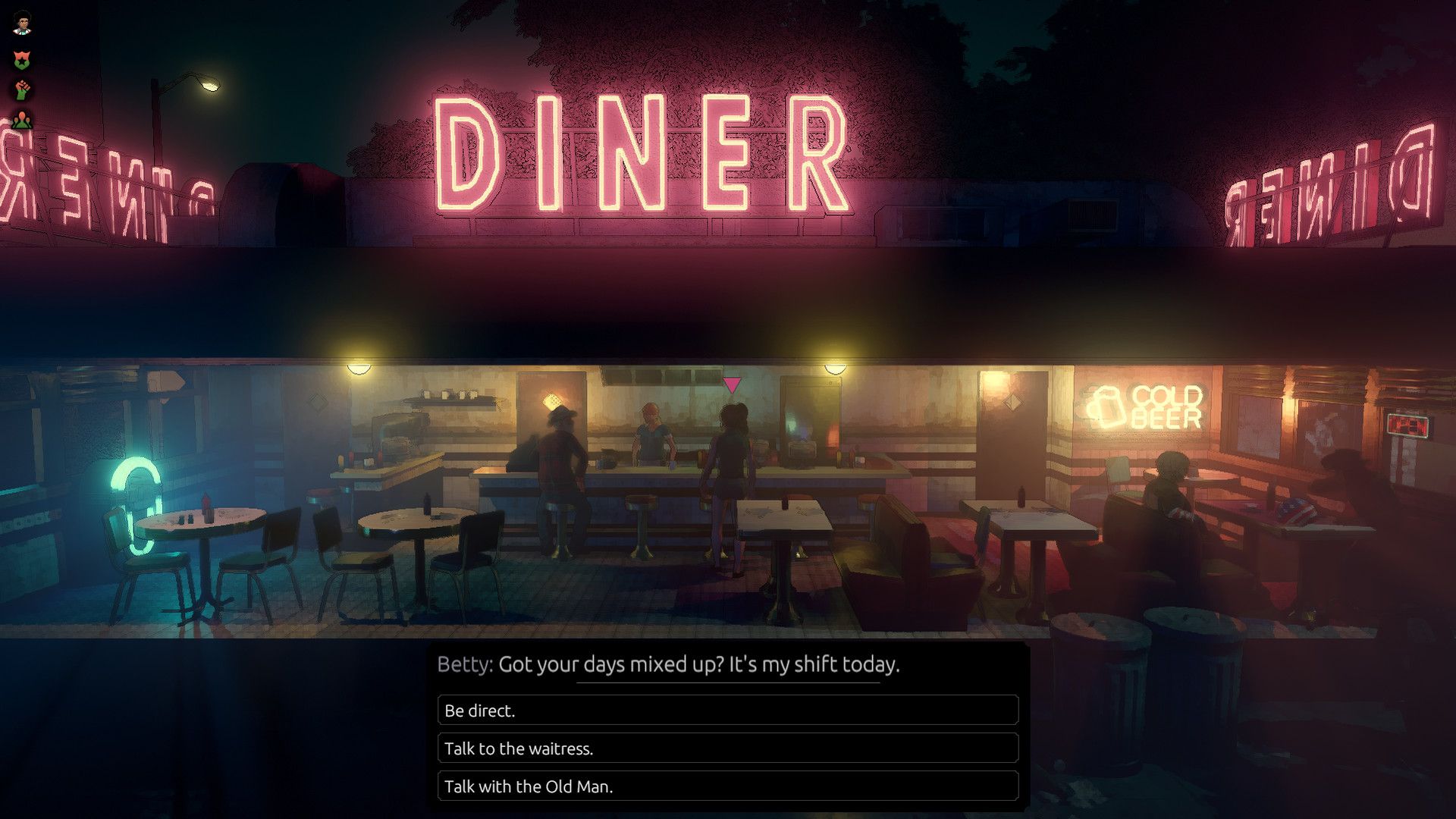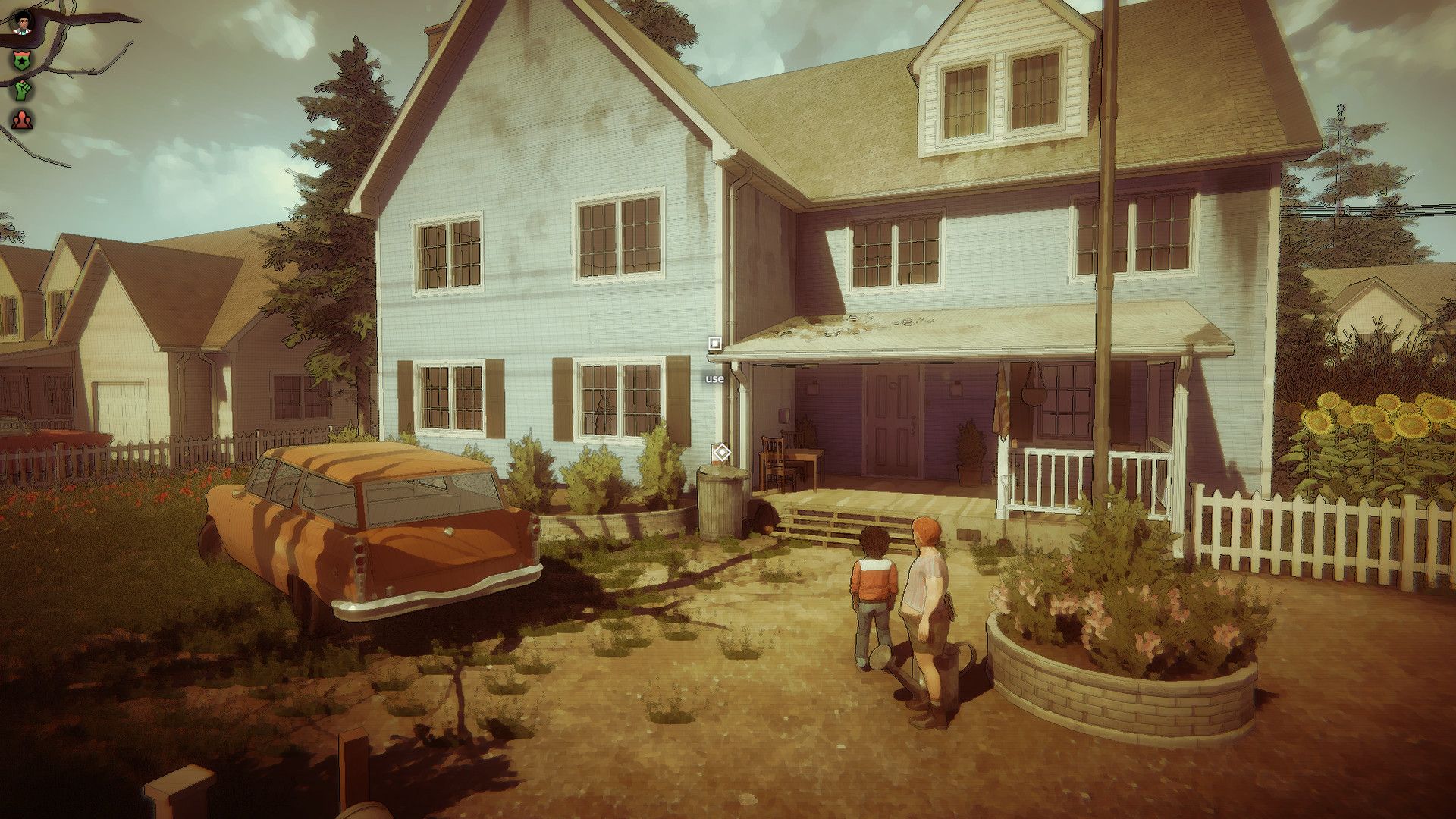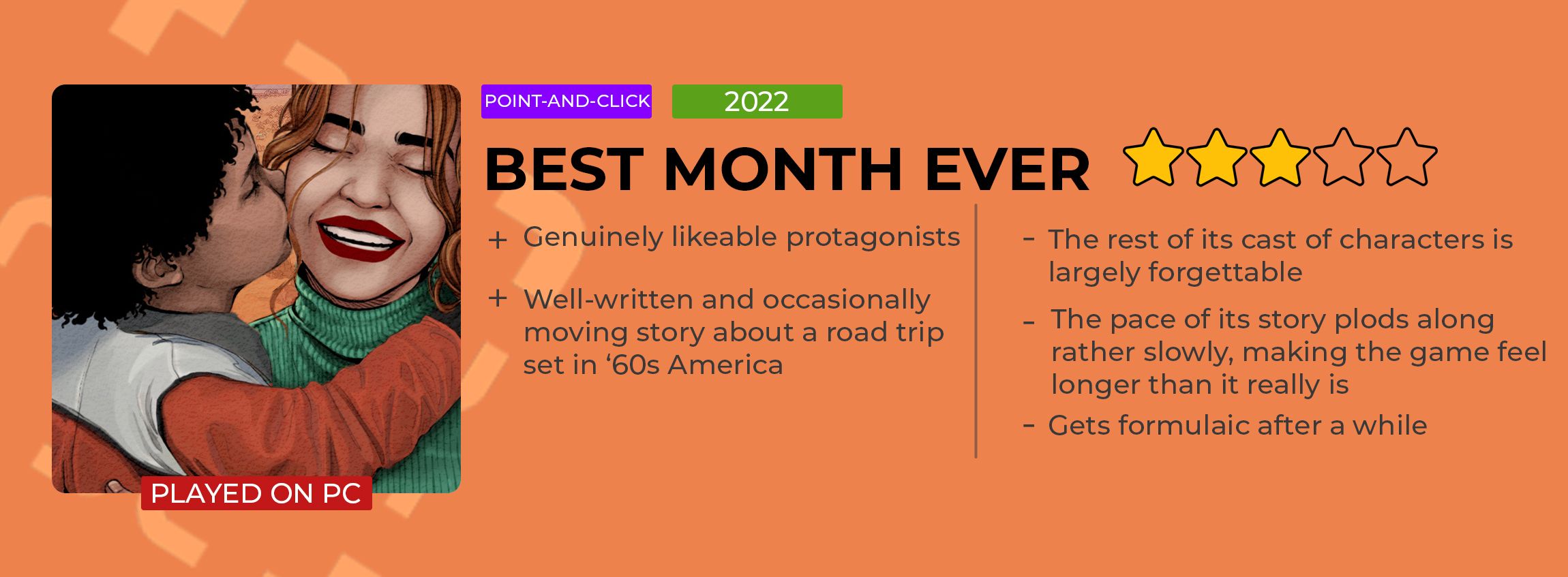Best Month Ever! (I’ll leave the exclamation mark out in subsequent mentions) wants to be a poignant road trip. In particular, it wants to be a trip down the stretch of memory lane that goes back to the less-than-glamorous history of America: the decades after the Emancipation Proclamation in 1863. It replicates the nostalgia of warm, sepia-toned photographs—those taken with an old-school film camera—as it retells this tale, and I mean this both literally and figuratively. Everything you’ll see in the game is a recollection of old memories, tangled in a web of historical events and personal anecdotes. Events play out via sequences of flashbacks that are clearly spliced together, in which you’ll click on a few objects or meander around the vicinity. Chapters conclude with a snapshot that wouldn’t look out of place with a cheesy “Wish you were here!” greeting, emblazoned across its image. And all these are set in the most Americana of backdrops: highways that lead to truck stop diners, drive-throughs amidst the cliffs of the Grand Canyon, and riverside campfires in the thick of a forest.
But the most memorable of road trips have a vivid, enduring story tying them all together. In Best Month Ever, this tale is centred around a young man named Mitch, who’s recalling one of the best and most bittersweet moments of his life: when his mother, Louise, decided to drive their beat-up car across rutted dirt roads and stretches of asphalt. Of course, life in 1960s America isn’t going to be easy for a single white mother and her Black child, and it will come as no surprise that Best Month Ever is also about navigating the systematic issues and obstacles of that era as the duo. Louise and Mitch will visit estranged family and long-lost friends, while spending precious hours with one another, with these chronologised as montages in Mitch’s rough childhood. But how Louise and Mitch respond to these scenarios, through dialogue options and key decisions, will influence Mitch’s personality and the game’s ending, too. This has been emphasised repeatedly on Best Month Ever’s Steam page as “Your choices matter!”, “Everything has consequences”, and “Your decisions REALLY matter!”, with a somewhat eye-boggling figure of nine unique endings.
These conclusions, of course, are ultimately beholden to a system of numbers. If Louise is wont to act impulsively, or behave in a manner that’s staunchly anti-establishment, Mitch will remember it; this will supposedly add or subtract some figures from a given formula, which will determine the sort of ending you’ll get. I’m describing these in a very mechanical manner obviously, but the thing about Best Month Ever is the way that this story is presented feels rather cursory, as if it really is just a game set in the backdrop of 1960s America. You’re invited to poke around the environments, but you’re never truly incentivised to find out more. After a while, the skeletal framework of its narrative begins to show, something I find almost impossible to ignore after spending an hour or so with the game: a short monologue by the grown-up Mitch, some dialogues between its characters, and a closing statement by Mitch, summing up his feelings and the events of the chapter.
Then there’s its story which, while well-written and genuinely moving at times, plods along at its own leisurely pace, with anecdotes that rarely reach an emotional high or rock bottom. Things, as it seems, eventually unfold like clockwork. You don’t really get to know its cast of characters better aside from Louise and Mitch, most of whom seem largely detached from the scenes in the game, repeating words that they’re programmed to say. Plus, interspersed between conversations and exploration are some brief quick-time events and driving sequences, but it feels oddly arbitrary, as if to justify its existence as a video game. As such, Best Month Ever feels like it’s progressing at a glacial pace, as it meanders towards its point. Even for a game that’s relatively short, it sometimes feels like it has gone on for ages.
That’s not to say that Best Month Ever is devoid of all personality. A highlight of the game is Louise, a feisty lady who’s immensely likeable, probably because she’s one character we’re most acquainted with as players. That, I suspect, is the main issue behind Best Month Ever; that even with a cast of potentially fascinating characters, we don’t really earn the opportunity to know most of them intimately, and thus they’re mostly reduced to animatronic figures that dither and amble about in the background. Hell, even the car that Louise and Mitch spend their road trip in has more screen time than the bulk of its cast, its state a clear metaphor for the various stages of Louise’s and Mitch’s journey together, from its beginnings as a speedy, hardy convertible to its constant need for repairs and maintenance in its later stages.
Eventually, Best Month Ever becomes a largely run-of-the-mill road trip; you know, the sort of trip you don’t mind embarking on, but would be perfectly okay if it has to end prematurely. In other words, it’s not exactly the most thrilling or boring of journeys, but also one that needs frequent pit stops to sustain your interest, if you wish to see the game through to its conclusion. What’s unfortunate is that Best Month Ever also unabashedly pines for several playthroughs, as evident in its myriad endings, but the vehicle it’s run on guzzles your stamina and patience like the least fuel efficient of cars. Unfortunately, I only have the capacity for a single excursion or two; I don’t think I can stay awake as the road trip sluggishly cruises towards its destination.
Score: 3/5. A review copy was provided by the publisher.
Source: Read Full Article


